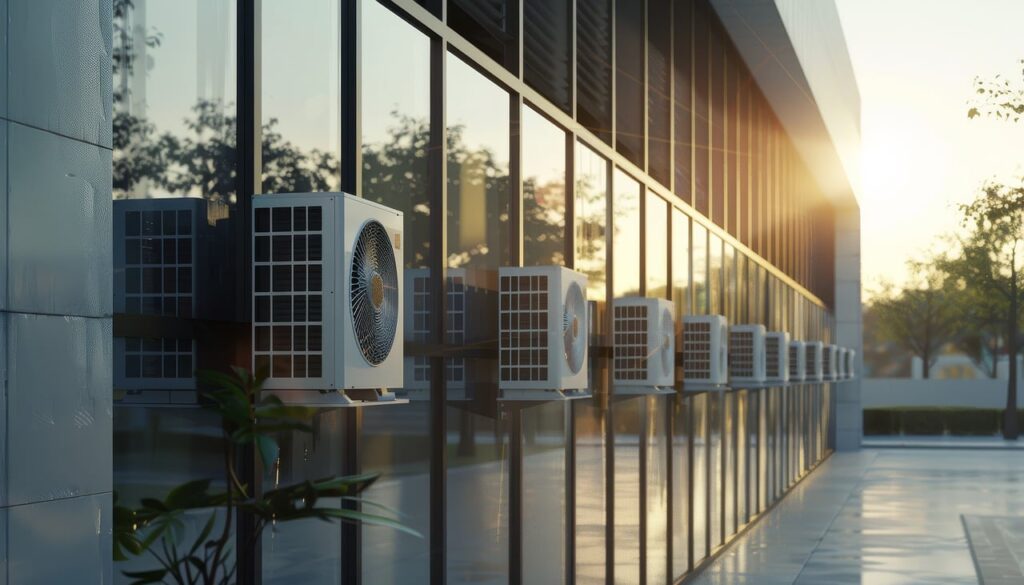
Managing a multi-unit property comes with its own set of challenges, especially when it comes to upgrading essential systems. HVAC upgrades are crucial not only for tenant comfort but also for energy efficiency and compliance with local regulations. Whether you’re a property manager or an owner, planning and budgeting for improvements is a critical step. Here’s a comprehensive guide to help you navigate the budgeting process and explore financing options for HVAC upgrades in multi-unit properties.
Assess Your Current HVAC System
Before you start planning for an upgrade, conduct a thorough assessment of your current system. This assessment should include:
- System Age and Condition: Older systems are less efficient and more prone to breakdowns. Knowing the age and current condition of your system will help determine if a full replacement is necessary.
- Energy Efficiency: Check the system’s energy efficiency ratings. Older systems might not meet current energy efficiency standards, leading to higher utility bills.
- Repair History: Frequent repairs can add up quickly. If your system has a history of regular breakdowns, an upgrade might be more cost-effective in the long run.
A professional technician can help you evaluate the system’s condition and provide recommendations for upgrades or replacements.
Set Clear Goals for Your HVAC Upgrade
Once you’ve assessed your current system, set clear goals for the upgrade. Consider factors like:
- Energy Efficiency: Aim for higher efficiency units that can significantly reduce energy consumption and costs.
- Comfort: Ensure that the upgraded system provides consistent heating and cooling across all units.
- Compliance: Make sure the new system complies with local building codes and regulations.
Having clear goals will help guide your budgeting process and ensure you invest in the right upgrades.
Create a Detailed Budget Plan
Creating a detailed budget is crucial for managing costs. Your budget should include:
- Equipment Costs: Research different HVAC systems and their prices. Consider both the upfront costs and the long-term savings from energy efficiency.
- Installation Costs: Get quotes from multiple contractors to find the best price for installation services.
- Maintenance Costs: Factor in regular maintenance to keep the new system running efficiently and extend its lifespan.
- Contingency Fund: Allocate extra funds for unexpected expenses that might arise during the upgrade process.
By accounting for all potential costs, you can avoid surprises and ensure a smooth upgrade process.
Explore Financing Options
Upgrading HVAC systems can be a significant investment, but there are various financing options available to help spread the cost:
- Loans and Credit Lines: Consider taking out a loan or opening a line of credit to finance the upgrades. Many banks and financial institutions offer loans specifically for property improvements. Click here to learn about financing options catered to our customers.
- Property Improvement Loans: These loans are designed for property upgrades and often come with favorable terms. They can be a good option for multi-unit property owners looking to upgrade their systems.
Look for Rebates and Tax Incentives
Many governments and utility companies offer rebates and tax incentives to encourage energy-efficient upgrades. These incentives can significantly reduce the overall cost of your HVAC upgrade. Here’s how to take advantage of them:
- Energy Star Rebates: Look for Energy Star-certified systems that qualify for rebates. These systems meet high-efficiency standards and can save you money on both purchase and energy bills.
- Federal and State Tax Credits: Check for federal and state tax credits for energy-efficient upgrades. These credits can offset a portion of your upgrade costs.
- Utility Company Incentives: Some utility companies offer rebates for installing energy-efficient systems. Contact your local utility provider to see what incentives are available.
Upgrading HVAC systems in multi-unit properties requires careful planning and budgeting, but the benefits of increased energy efficiency, tenant comfort, and long-term savings make it a worthwhile investment. By assessing your current system, setting clear goals, creating a detailed budget, exploring financing options, and taking advantage of rebates and tax incentives, you can ensure a successful HVAC upgrade for your property. With the right approach, upgrading your HVAC system can be a seamless process that enhances the value and efficiency of your multi-unit property.
